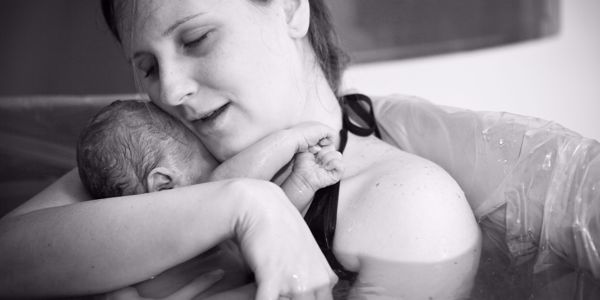Acne, facial hair, and stretch marks, oh my!
Ladies, I wish that was the end of the list, but there are so many more skin changes we endure during pregnancy.
When I was pregnant with my third boy, my obstetrician in Boston told me that our bodies change so drastically: it’s equally as drastic as a woman’s body becoming a man’s body. She said this while looking directly at my husband (perhaps she was trying to increase empathy and appreciation from the male species?), explaining that what my body was doing was no small feat.
During that pregnancy, my skin became drier than it ever had with my previous pregnancies. It was so dry, it was flaking and I was developing a rash.
My skin was cracking on my stomach to the point that I had blood spots in my stretch marks. To say it was “itchy” is an understatement. And it wasn’t just my stomach, which was stretching to accommodate space for the human lifeform I was growing. The rest of my body – my breasts and armpits – were incredibly dry and itchy as well.
My doctor suggested I try different creams and lotions, wrap my stomach (to lift and support the weight of the baby), and drink a lot more water. All of this helped, but I secretly wished I could transfer all of the excess oil I was producing on my face to the rest of my body, which desperately needed moisture. All I could think was, I’ve waited and worked a decade and a half to understand my skin type and now I’m going through puberty all over again!
My purse was full of contradictions: oil wipes for my face (which was greasier than state fair fried dough), lotion and creams for my stomach (which seemed to absorb all moisture within two seconds of application), a Ziploc of fresh lemon wedges to curb my nausea, Tums for heartburn caused by too much acid due to the lemons, water to stay hydrated, and maxi-pads to protect myself from embarrassment when I sneezed in public.
It’s fair to say that my mission during pregnancy was to try to get comfortable.
Why Does Skin Change in Pregnancy?
Our skin is the first indicator that something is happening inside of our bodies. It’s our body’s amazing way of alerting us that something is different, and we need to pay attention. Our hormones make such a radical shift when the body begins to grow a baby, and it tells us immediately via our skin.
Some women experience the glow. That glow is the increase in blood volume, giving you those radiant, flushed cheeks. Some women, like me, experience breakouts from increased hormones (primarily progesterone and androgens) which stimulate more oil production and … wait for it.... facial fuzz! Welcome back to puberty!
Darker Skin and Patches
It's very common for women to experience skin darkening on the body as well. During pregnancy, our bodies make extra melanin, which affects skin pigment, making our nipples and areolas darker, giving us darker armpits and inner thighs, creating patches on our forehead, cheeks and neck, and making a dark line appear, called a linea nigra, from our belly button down to our pubic bone. Not all women experience this, but it is normal and tends to fade away after giving birth.
Varicose Veins
The blood volume in a woman increases by 50 percent when she becomes pregnant. One of the downsides of having all this extra blood circulating through your veins is it can be uncomfortable. It can cause swelling in the legs and visible varicose and spider veins.
During my last pregnancy, my legs became so swollen and covered in veins I was prescribed thigh-high compression socks to stimulate healthier blood flow. My legs had so many spider veins, it looked like a road map. But these things can be treated! If you’re experiencing this, talk to your OBGYN or care provider about it, so they can help you feel more comfortable.
Stretch Marks
Raise your hand if your stomach also looks like you were mauled by the bear in The Revenant! According to the aestheticians at Park Slope Laser Aesthetic Center in Brooklyn, New York, “more than 70 percent of women are believed to get stretch marks starting around the 25th week of their pregnancies” and according to Medical News Today, “around 40 percent of boys and about 70 percent of girls get stretch marks while going through puberty.”
Now I’m wondering, who doesn’t have stretch marks? Even when we put every cream, lotion, and brand name balm imaginable on our growing bellies, our genetics and fate still have a role to play. So, embrace those battle scars! You earned them.
Voice all of your concerns and complaints with your doctor, because I promise you, they’ve heard it all and they know exactly how to help.
The visible signs of pregnancy aren’t all pleasant, and it can be so rough to look in the mirror and wonder who this new woman is. But momma, you will adjust and survive, because you have no other choice, and because you’re strong. All of the inconveniences and discomforts will pass. And if you feel like you never experienced the glow during your pregnancy, it’s because you’re soon going to be holding that perfect, beautiful glow in your arms!





